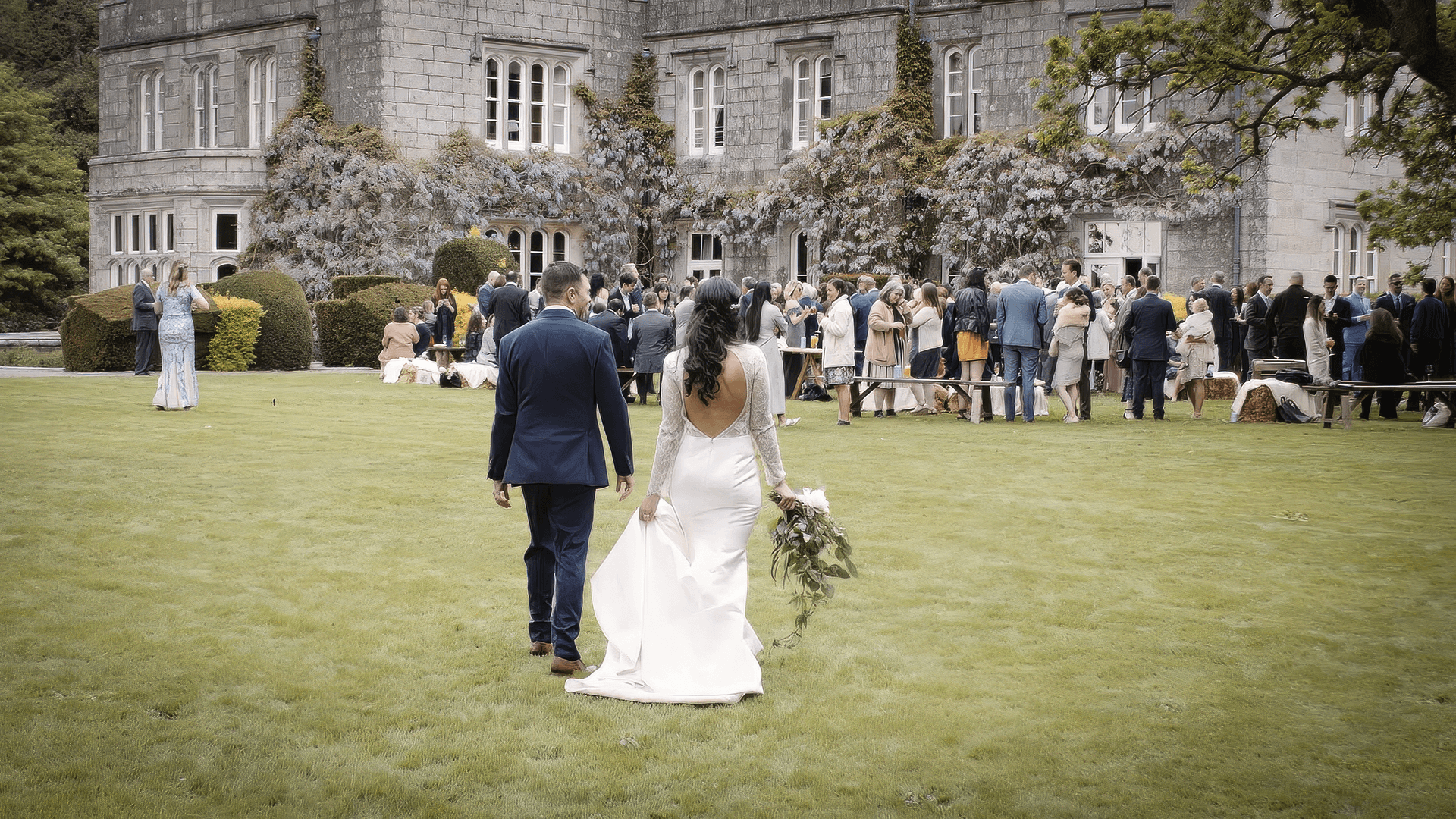
Planning a Destination Wedding in Ireland: A Comprehensive Guide
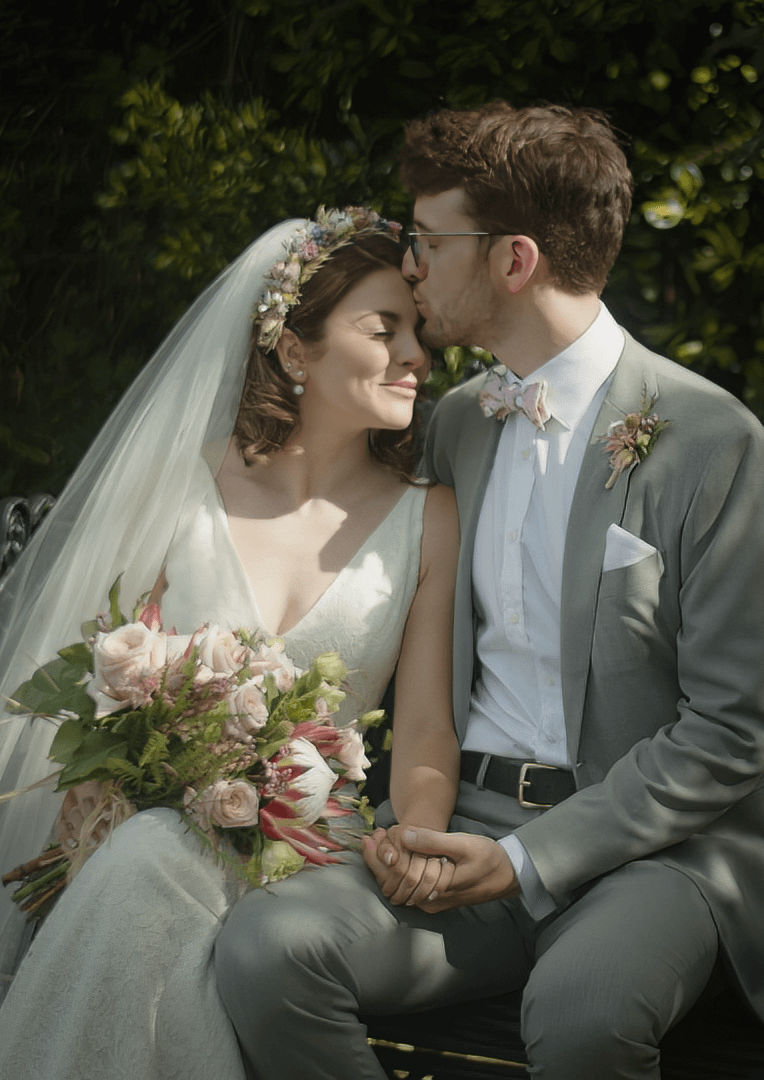
Planning a destination wedding in Ireland can be a daunting task, especially if you’re considering getting married in a foreign country. However, if you’re looking for a romantic and unique location, Ireland may be the perfect destination for your big day. With its stunning landscapes, rich history, and vibrant culture, Ireland offers a magical setting for your wedding celebration.
To plan a successful destination wedding in Ireland, it’s important to do your research and plan in advance. You’ll need to consider the legal requirements for getting married in Ireland, as well as the logistics of planning a wedding from afar. Fortunately, there are many resources available to help you navigate the process, from wedding planners to online guides.
Whether you’re dreaming of a fairytale castle wedding or a rustic ceremony in the countryside, Ireland has something to offer every couple. From the Cliffs of Moher to the Ring of Kerry, the Emerald Isle is full of breathtaking scenery and charming towns that will make your wedding day unforgettable. With careful planning and a sense of adventure, you can create the wedding of your dreams in one of the most beautiful countries in the world.
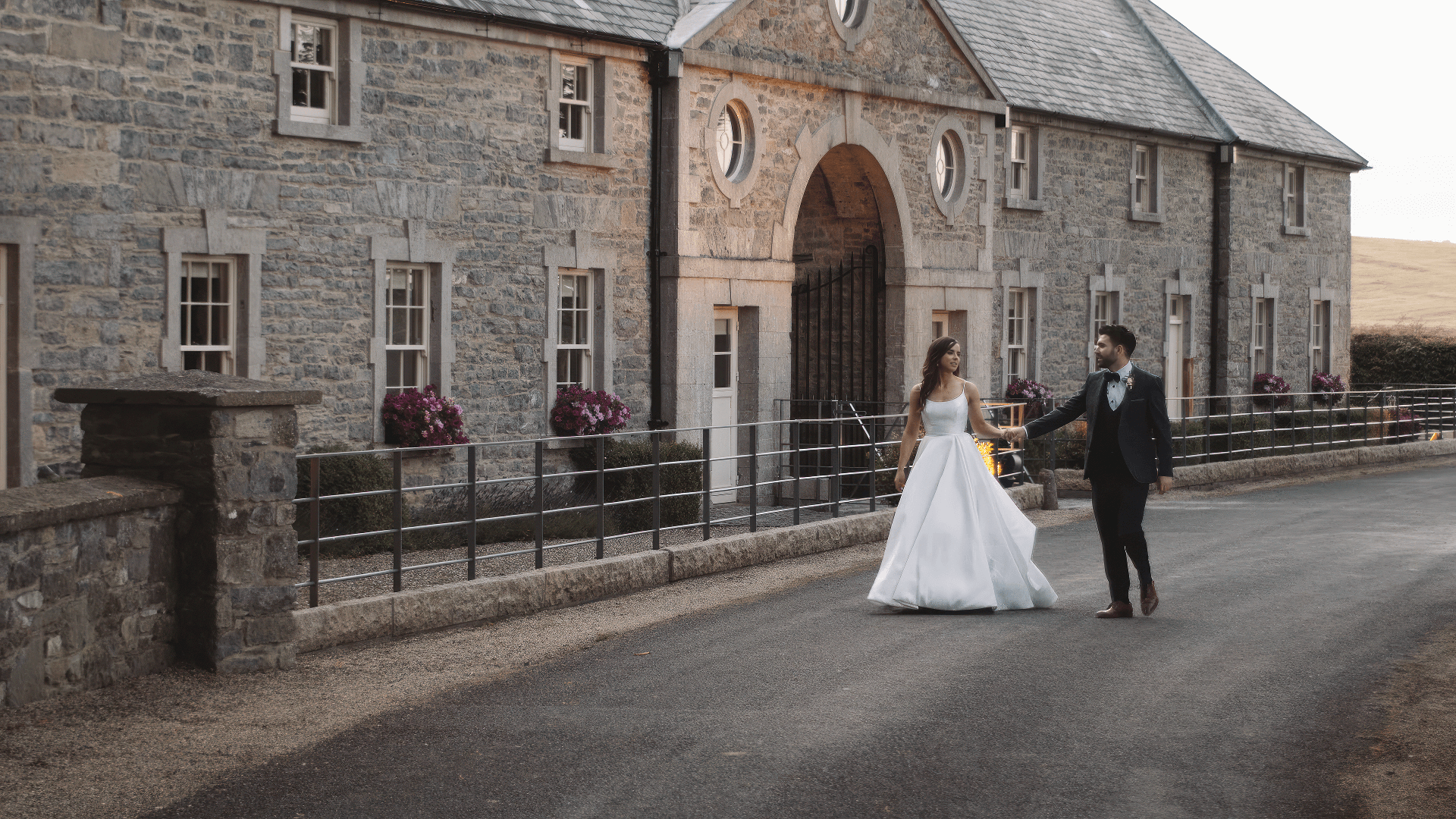
Why Choose Ireland
If you are considering a destination wedding, Ireland may be the perfect choice for you. Here are a few reasons why couples choose Ireland for their wedding:
Scenic Beauty
Ireland is known for its breathtaking landscapes, ranging from lush green hills to rugged coastlines. You can choose from a variety of wedding venues, including castles, historic inns, and picturesque gardens. Whether you prefer a rustic barn or a grand estate, Ireland has a location that will suit your style and budget.
Authentic Experience
Ireland offers a unique blend of history, culture, and hospitality that is hard to find anywhere else. Your guests will be able to immerse themselves in the local traditions and customs, from music and dance to food and drink. You can also incorporate Celtic wedding traditions into your ceremony, such as handfasting or the Claddagh ring.
Legal Requirements
Getting married in Ireland is relatively straightforward, especially if you are a citizen of an EU country or the US. You will need to give notice of your intention to marry at least three months before your wedding date. You will also need to provide certain documents, such as your birth certificate and passport. You can find more information about the legal requirements for getting married in Ireland here.
Ease of Travel
Ireland is easily accessible from most major airports, with direct flights from the US, UK, and Europe. Once you arrive, you can explore the country by car, train, or bus. You can also hire a private driver or take a guided tour to see the sights. Ireland is a small country, so you can easily visit multiple locations during your stay.
Value for Money
Ireland offers excellent value for money compared to other European destinations. You can find affordable wedding packages that include everything from venue hire to catering and accommodation. You can also take advantage of the favourable exchange rate if you are travelling from outside the Eurozone.
Overall, Ireland is a fantastic choice for couples who want a unique and memorable destination wedding. With its stunning scenery, rich culture, and friendly people, Ireland is sure to make your special day unforgettable.
Selecting the Perfect Irish Location
When it comes to planning a destination wedding in Ireland, selecting the perfect location is crucial. Ireland is a beautiful country with a variety of stunning locations to choose from. Here are some of the most popular options to consider:
Historical Castles
Ireland is known for its beautiful castles, and they make for an unforgettable wedding venue. Many castles offer wedding packages that include the use of the castle and its grounds for the ceremony and reception. Some even offer accommodations for you and your guests. Popular castle wedding venues include Ashford Castle, Dromoland Castle, and Luttrellstown Castle.
Breathtaking Countryside
The countryside in Ireland is truly breathtaking, with rolling green hills and stunning landscapes. Many couples choose to have an outdoor wedding in the countryside, taking advantage of the natural beauty. Some popular countryside wedding venues include Ballybeg House, Ballinacurra House, and Ballyvolane House.
Picturesque Coastal Regions
Ireland’s coastline is another popular location for destination weddings. With rugged cliffs, sandy beaches, and picturesque fishing villages, there are plenty of options to choose from. Some popular coastal wedding venues include The Cliff House Hotel, The Lodge at Doonbeg, and The Quay House.
When selecting your perfect Irish location, consider your budget, the size of your wedding, and the style of wedding you want. It’s also important to keep in mind the weather, as Ireland can be rainy and windy at times. No matter what location you choose, a destination wedding in Ireland is sure to be a magical and unforgettable experience.
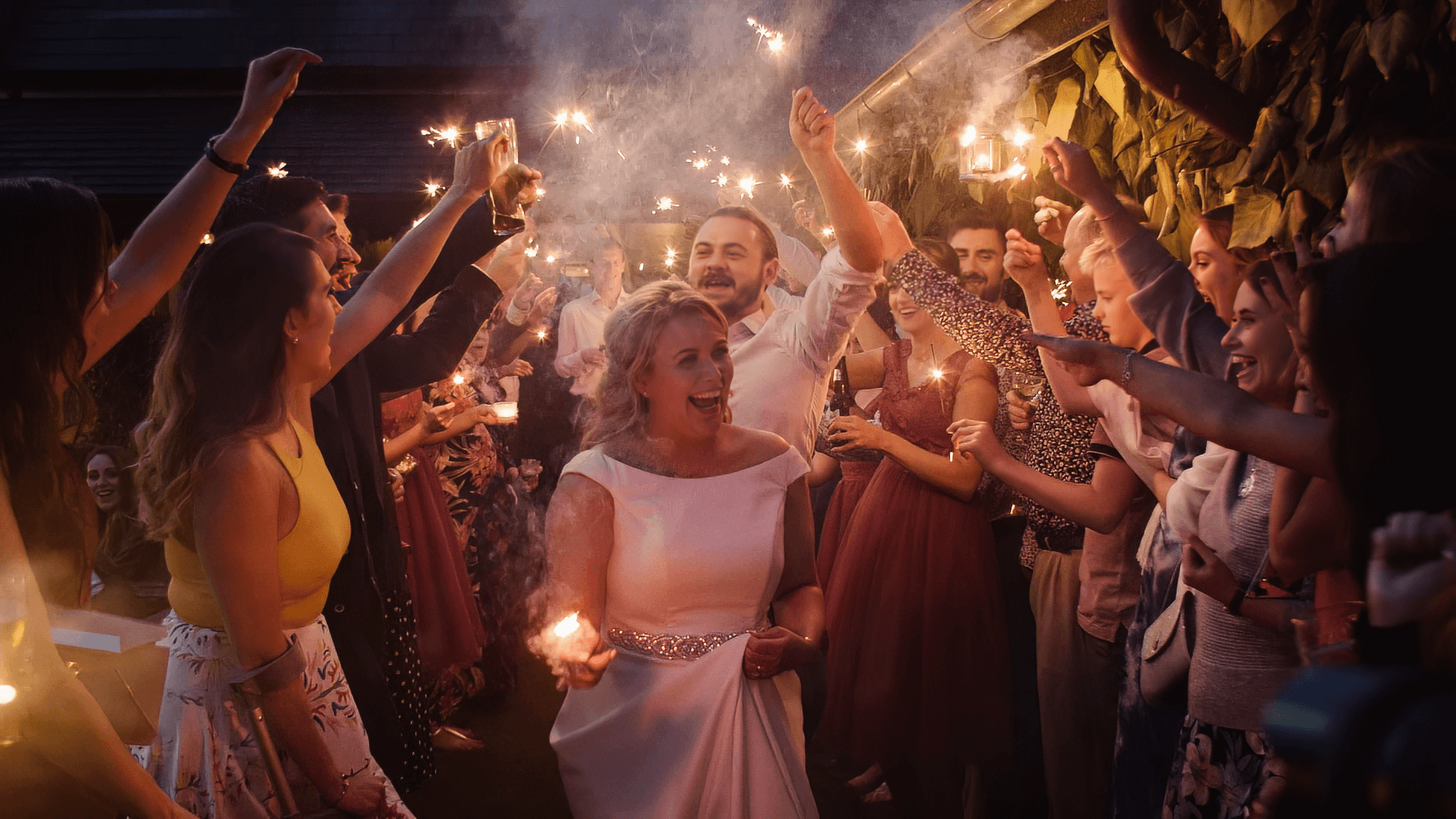
Understanding the Legal Requirements
If you’re planning to have a destination wedding in Ireland, it’s important to understand the legal requirements for getting married in the country. Here are some key points to keep in mind:
Marriage License Application
To legally marry in Ireland, you must apply for a marriage license at least three months before your wedding date. If you’re living overseas, you can submit your application by post, but you will still need to meet with the registrar in person at least five days before the wedding.
Documents Required
When applying for a marriage license, you will need to provide the following documents:
- Your birth certificates
- Your passports
- If applicable, divorce or death certificates from previous marriages
- If applicable, a Deed Poll or Change of Name Deed
Notice of Intention
After your marriage license application has been approved, you will need to submit a Notice of Intention to Marry to the registrar at least five days before the wedding. This notice will be displayed publicly for three days, during which time anyone can object to your marriage.
Witnesses
You will need two witnesses to sign your marriage register during the ceremony. These witnesses must be over 18 years old and must be present for the entire ceremony.
Legal Recognition
Legal marriages in Ireland are recognized all over the world, so you won’t need to worry about having your marriage recognized in your home country.
Same-Sex Marriage
Same-sex marriage has been legal in Ireland since 2015. The legal requirements for same-sex couples are the same as for opposite-sex couples.
Religious Ceremonies
If you’re having a religious ceremony, you may need to provide additional documentation depending on the requirements of your chosen religion.
Overall, while the legal requirements for getting married in Ireland may seem daunting, they are relatively straightforward. With a bit of planning and preparation, you can ensure that your destination wedding in Ireland is legally recognized and stress-free.

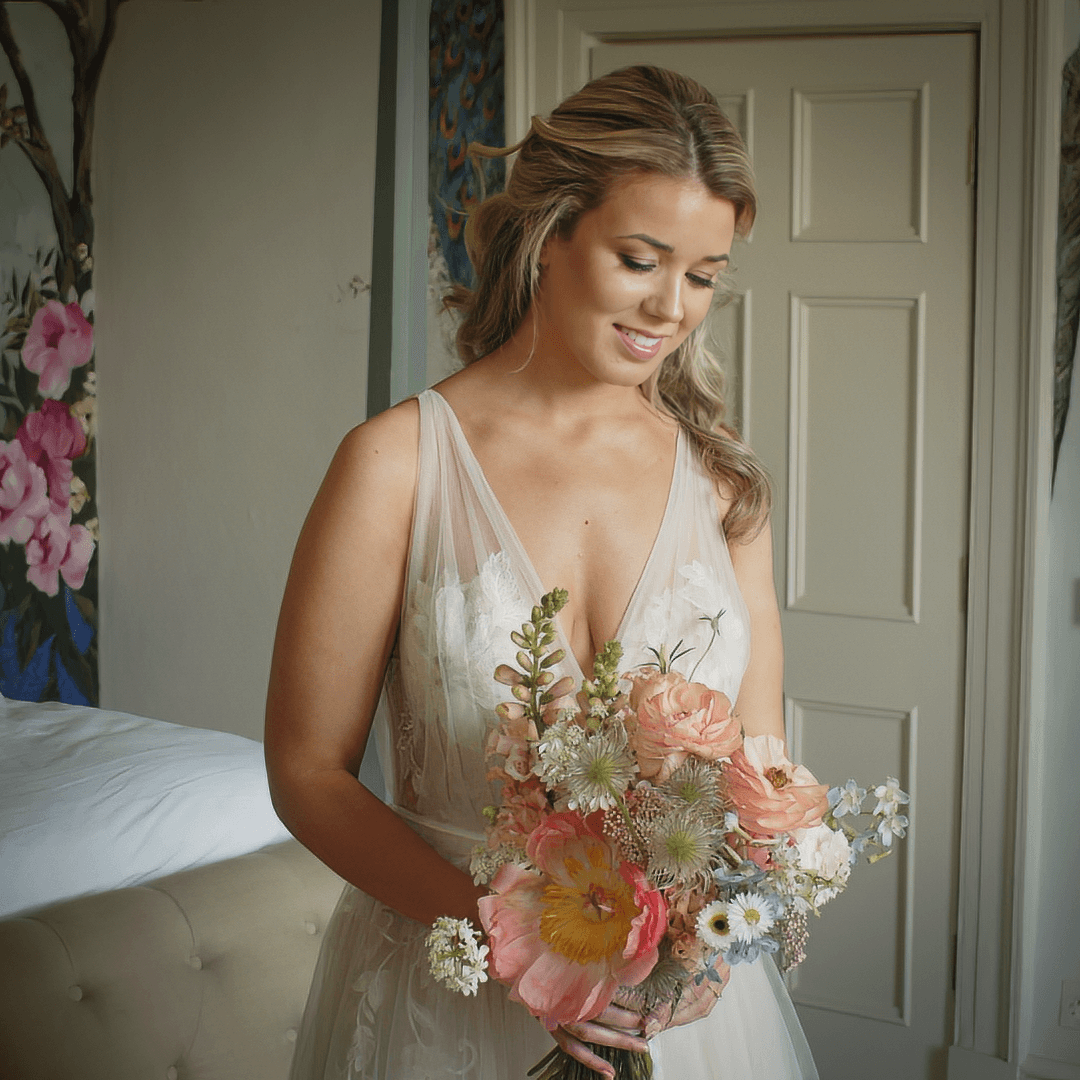
Best Time to Plan
When planning a destination wedding in Ireland, it’s important to consider the best time to visit the country. The weather in Ireland can be unpredictable, so it’s essential to choose a time of year that suits your preferences and requirements.
The peak tourist season in Ireland is from June to August, when the weather is generally mild and sunny. However, this is also the busiest time of year, and prices for accommodation and flights can be higher. If you’re planning a wedding during this time, it’s important to book well in advance to avoid disappointment.
If you’re looking for a more affordable and quieter time to plan your wedding, consider visiting Ireland in the shoulder seasons of April to May or September to October. During these months, the weather is still pleasant, and the crowds are thinner, making it easier to find accommodation and venues.
Winter weddings in Ireland can be magical, with the possibility of snow adding to the romantic atmosphere. However, it’s important to note that the weather can be unpredictable during this time, and some venues may be closed. If you’re planning a winter wedding, it’s best to choose a venue that is well-equipped to deal with any adverse weather conditions.
No matter what time of year you choose to plan your destination wedding in Ireland, it’s important to be prepared for the weather. Make sure to pack appropriate clothing and footwear, and consider indoor venues or covered areas in case of rain. With careful planning and preparation, your wedding in Ireland is sure to be a memorable and magical experience.
Working with Wedding Planners in Ireland
Planning a destination wedding in Ireland can be a daunting task, especially if you’re not familiar with the country or its wedding industry. That’s why working with a wedding planner in Ireland can be a great option to help you navigate the process and ensure your wedding day is everything you’ve dreamed of.
Here are a few things to keep in mind when working with wedding planners in Ireland:
Choose a reputable wedding planner
When selecting a wedding planner in Ireland, it’s important to do your research and choose a reputable planner with experience planning destination weddings in Ireland. Look for planners who have positive reviews from previous clients and who are members of professional wedding planning associations, such as the Irish Association of Wedding Planners and Coordinators (IAWPC).
Communicate your vision clearly
To ensure your wedding planner understands your vision for your wedding day, it’s important to communicate your ideas and preferences clearly. Share your Pinterest boards, colour schemes, and any other inspiration you have with your planner so they can help bring your vision to life.
Be open to local traditions and customs
Ireland has a rich culture and many unique wedding traditions and customs. Be open to incorporating some of these traditions into your wedding day, such as handfasting or a traditional Irish blessing. Your wedding planner can help you navigate these traditions and ensure they’re incorporated in a way that feels authentic and meaningful to you.
Consider your budget
Working with a wedding planner in Ireland can be an added expense, but it can also save you money in the long run by helping you find the best vendors and negotiate favourable rates. Be upfront with your planner about your budget and priorities so they can help you make informed decisions and stay within your budget.
Trust your wedding planner
Remember, your wedding planner is an expert in planning weddings in Ireland and has your best interests at heart. Trust their advice and recommendations, and don’t be afraid to ask questions or voice any concerns you may have. With their help, you can relax and enjoy your wedding day knowing all the details have been taken care of.
Accommodation and Transport
When planning a destination wedding in Ireland, it’s important to consider accommodation and transport for both you and your guests. Here are some tips to help you plan:
Accommodation
There are plenty of accommodation options in Ireland, ranging from luxurious hotels to cozy bed and breakfasts. It’s important to book your accommodation in advance, especially if you’re getting married during peak season.
If you’re having a large wedding, you may want to consider booking a block of rooms at a hotel or renting a large house for you and your guests to stay in. Many hotels and guesthouses offer wedding packages that include accommodation, catering, and other services.
Transport
Transportation is also an important consideration when planning a destination wedding in Ireland. Depending on where you’re getting married, you may need to rent a car or hire a driver to get around.
If you’re staying in a hotel, they may be able to arrange transportation for you and your guests. Alternatively, you can book a coach or minibus to transport your guests to and from the wedding venue.
It’s also important to consider how your guests will get to Ireland. There are several international airports in Ireland, including Dublin, Shannon, and Cork. You may want to consider arranging transportation from the airport to the wedding venue for your guests.
Overall, planning accommodation and transport for your destination wedding in Ireland requires careful consideration and advance planning. By booking early and working with local vendors, you can ensure that your wedding is a success and that your guests have a comfortable and enjoyable stay in Ireland.
Cultural Considerations
When planning a destination wedding in Ireland, it’s important to consider the local culture and traditions to make your wedding experience truly authentic. Here are some cultural considerations to keep in mind:
Irish Wedding Traditions
Irish weddings are steeped in tradition, and incorporating some of these customs into your ceremony and reception can add a unique and meaningful touch to your special day. For example, a traditional Irish wedding ceremony may include a handfasting ritual, where the couple’s hands are tied together with a ribbon or cord to symbolize their commitment to each other. Another popular tradition is the Claddagh ring, which can be used as a wedding band and represents love, loyalty, and friendship.
Dress Code
The dress code for an Irish wedding can vary depending on the location and style of the event. For a formal wedding, men may wear a tuxedo or suit, while women may opt for a long gown or cocktail dress. For a more casual or rustic wedding, men may wear a tweed jacket and trousers, while women may choose a flowy dress or skirt with boots or flats. It’s also worth considering the weather when choosing your attire, as Ireland can be quite rainy and windy, especially in the autumn and winter months.
Food and Drink
Irish cuisine is known for its hearty and comforting dishes, and incorporating some traditional Irish food and drink into your wedding menu can be a great way to celebrate the local culture. Some popular options include Irish soda bread, shepherd’s pie, and fish and chips. For drinks, you may want to serve Guinness or Irish whiskey, or even offer a whiskey tasting station for guests to try different varieties. It’s also worth considering any dietary restrictions or preferences of your guests when planning the menu.
Overall, incorporating some Irish traditions, considering the dress code, and incorporating traditional Irish food and drink can help make your destination wedding in Ireland a truly unforgettable experience.
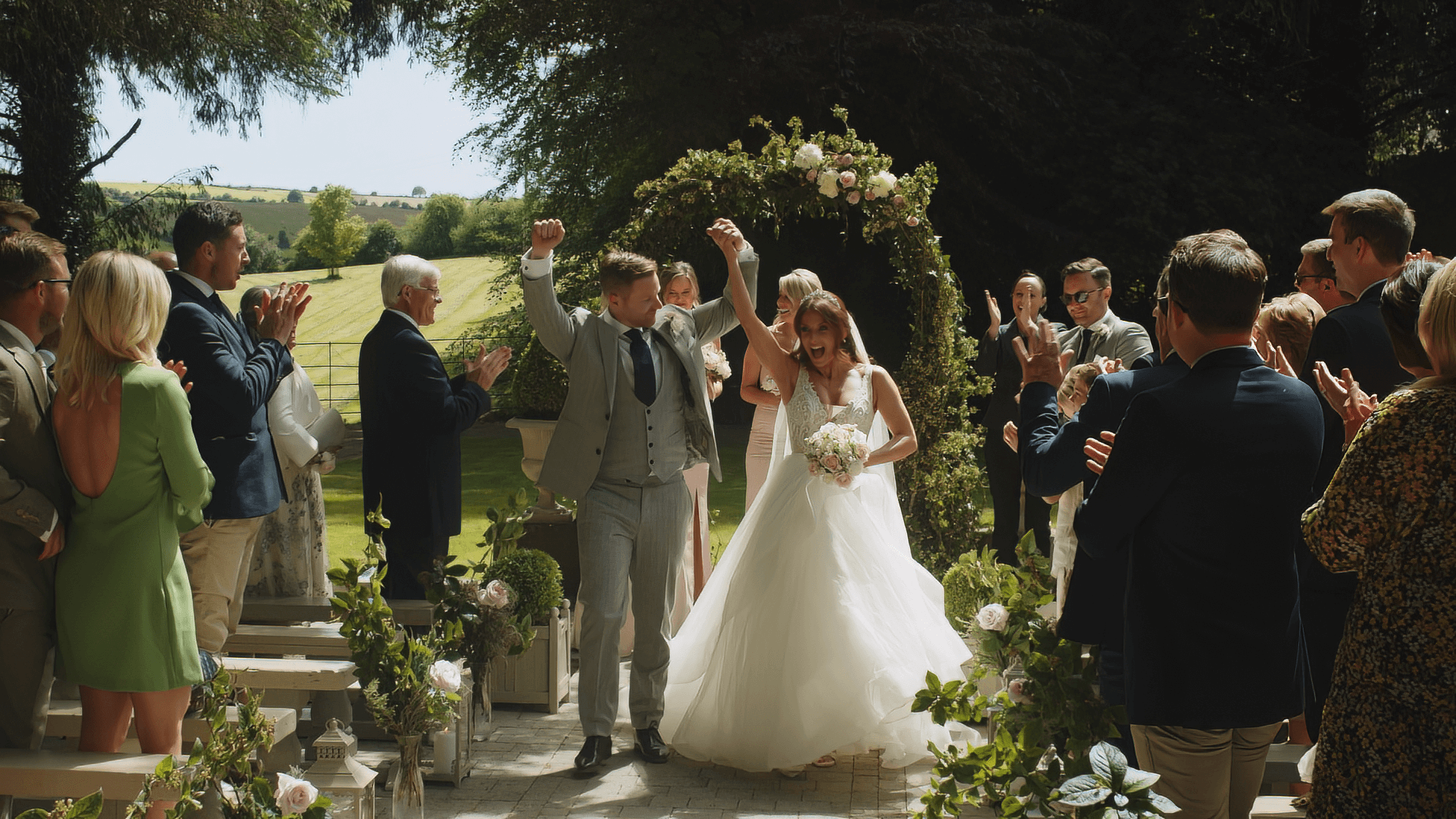
Budgeting for Your Destination Wedding
Planning a destination wedding in Ireland can be a dream come true, but it can also be expensive. It’s important to create a budget and stick to it to avoid overspending. Here are some tips to help you budget for your destination wedding in Ireland:
1. Determine your priorities
Before you start budgeting, determine what is most important to you and your partner. Is it the venue, the food, the entertainment, or something else? Once you have your priorities, you can allocate your budget accordingly.
2. Research venues and vendors
Research is key when it comes to budgeting for a destination wedding in Ireland. Look for venues and vendors that fit your budget and your vision. Consider renting a house or houses on the same property with enough bedrooms and bathrooms for all your guests. This can be more cost-effective than renting a hotel or resort.
3. Consider the time of year
The time of year you choose to get married can have a big impact on your budget. Peak wedding season in Ireland is from May to September, so prices may be higher during this time. Consider getting married during the off-season, which is from October to April, to save money.
4. Be mindful of exchange rates
If you’re coming from a different country, be mindful of exchange rates when budgeting for your destination wedding in Ireland. Keep in mind that currency exchange rates can fluctuate, so it’s important to keep an eye on them.
5. Don’t forget about hidden costs
When budgeting for your destination wedding in Ireland, don’t forget about hidden costs such as taxes, gratuities, and transportation. These costs can add up quickly, so be sure to include them in your budget.
By following these tips, you can create a budget for your destination wedding in Ireland and avoid overspending. Remember to be flexible and willing to compromise on some things to stay within your budget.
Hiring a Wedding Videographer and Photographer
When it comes to planning a destination wedding in Ireland, hiring a wedding videographer and photographer is a crucial part of the process. These professionals will capture the memories of your special day, so it’s important to choose the right ones for your needs.
Research and Compare
Start by researching and comparing different wedding videographers and photographers in Ireland. Look for those who have experience in destination weddings and who have a style that matches your vision for your wedding day. You can find a list of some of the best wedding photographers in Ireland on our wedding blog below.
Consider Your Budget
When choosing a wedding videographer and photographer, it’s important to consider your budget. Prices can vary greatly depending on the level of experience and the services offered. Be sure to ask for a detailed breakdown of costs and what is included in each package.
Get Recommendations
Don’t be afraid to ask for recommendations from friends or family who have had a destination wedding in Ireland. They may be able to provide valuable insight into their own experiences and recommend wedding videographers and photographers they worked with and loved.
Related Posts:
Invitations and Guest Management
When planning a destination wedding in Ireland, it’s important to give your guests ample notice so they can make travel arrangements. Sending out save-the-date cards 6 to 8 months in advance is recommended. This will give your guests enough time to plan their trip, book flights and accommodations, and request time off work if necessary.
When it comes to invitations, consider including a map of Ireland and any important information about the wedding location and nearby attractions. You can also include a list of recommended accommodations and transportation options. Be sure to include an RSVP card with a deadline, so you can get an accurate headcount for the wedding.
Managing guest accommodations can be a challenge, but there are a few things you can do to make it easier. Consider booking a block of rooms at a hotel or B&B near the wedding venue, and provide your guests with a discount code or reservation link. You can also create a Facebook group or email list to keep your guests informed about the wedding details and any changes or updates.
If you’re having a large wedding, consider hiring a wedding planner or coordinator to help with guest management. They can assist with accommodations, transportation, and communication with guests, so you can focus on enjoying your special day.
Wedding Day Timeline
Your wedding day is the most important day of your life, and you want it to be perfect. Planning a destination wedding in Ireland requires careful consideration of the timeline, so you can ensure that everything runs smoothly.
Here’s a sample wedding day timeline to help you plan your big day in Ireland:
Morning
- 8:00am – Wake up and have breakfast with your bridal party.
- 9:00am – Hair and makeup artists arrive to begin getting ready.
- 11:00am – Photographer and Videographer arrives to capture getting ready shots.
- 12:00pm – Groom and groomsmen arrive at the ceremony venue to get ready.
Afternoon
- 1:00pm – Guests start arriving at the ceremony venue.
- 2:00pm – Ceremony begins.
- 2:30pm – Ceremony ends and guests move to the reception venue.
- 3:00pm – Bride and groom have photos taken with family and bridal party.
- 4:00pm – Reception begins with drinks and canapes.
- 5:00pm – Dinner is served.
- 7:00pm – Speeches and toasts.
- 8:00pm – First dance and dancing begins.
Late Night
- 11:00pm – Late-night snacks are served.
- 12:00am – Reception ends and guests depart.
It’s important to note that this is just a sample timeline, and you should adjust it to fit your specific needs and preferences. You may also want to consider having a wedding planner to help you create a custom timeline that works best for you.
Overall, planning a destination wedding in Ireland can be a dream come true. With careful planning and attention to detail, you can create a wedding day that you and your guests will never forget. As always, we’re here to help with all things weddings so drop us a line on our contact page and say hello, we’d love to hear all about your destination wedding plans!
More Articles
Winter Weddings in Ireland: Tips to Embrace the Magic Season
Winter weddings in Ireland offer a unique blend of enchanting romance and seasonal charm, providing a picturesque setting for your special day. The island's serene beauty transforms with the arrival of winter, cloaking the landscape in a peaceful ambience perfect for...
Best Wedding Venues in the West of Ireland: Top Locations for Your Dream Day
Flawlessly blending traditional charm and modern elegance, the West of Ireland offers some truly breathtaking wedding venues. From enchanting medieval castles to luxurious period manors, couples can find a variety of unique settings to celebrate their big day. Nestled...
Planning an Outdoor Wedding Ceremony in Ireland: Tips and Ideas
Planning an outdoor wedding ceremony in Ireland can be an exciting and beautiful way to celebrate your special day. With the stunning natural landscapes and picturesque scenery that Ireland has to offer, it's no wonder that more and more couples are choosing to tie...



